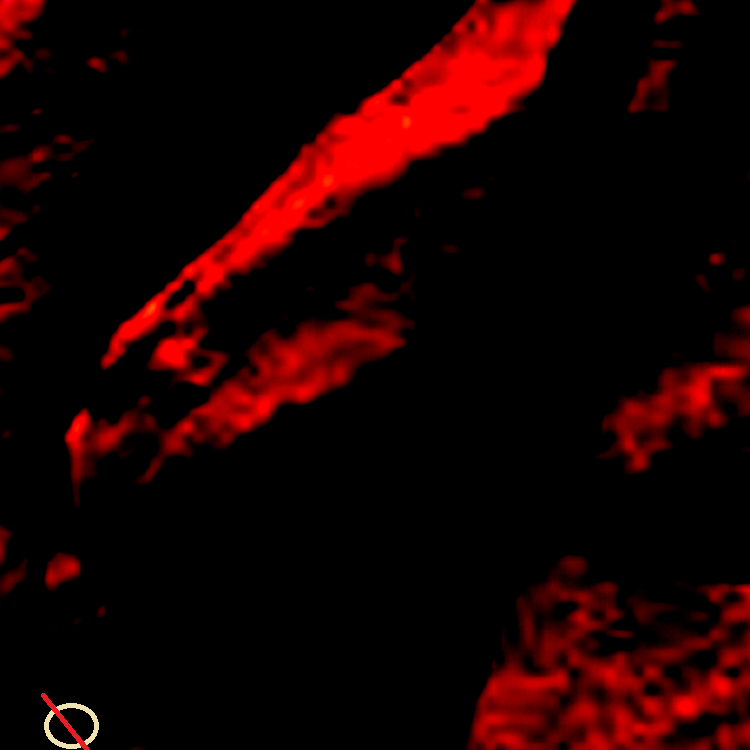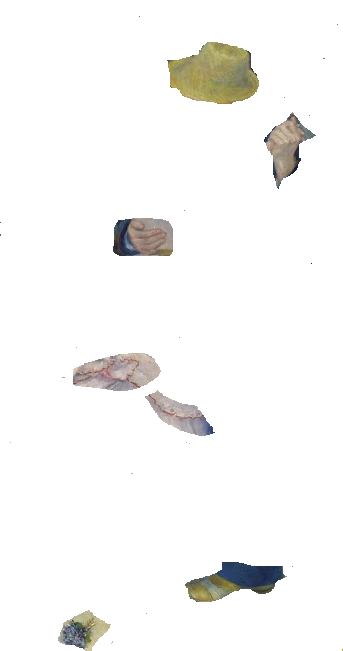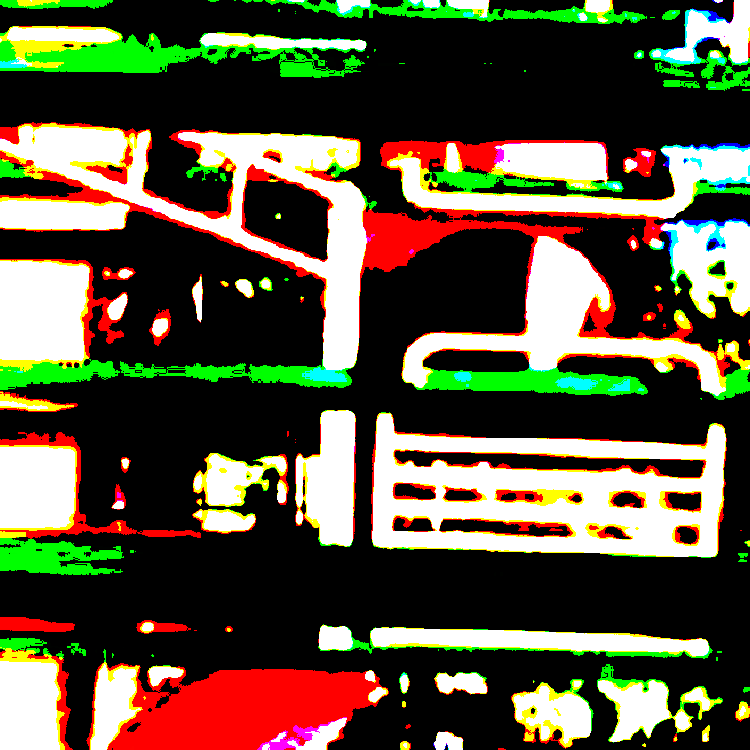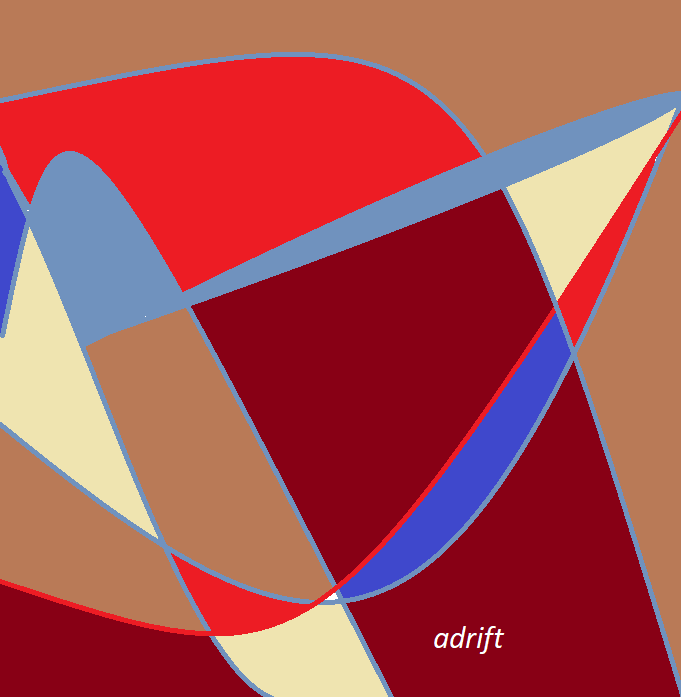Snow drip washes winter memories archived on the sidewalk Don’t analyze crickets cast a spell No room for panic across the lake don’t let him drown Regeneration It takes time to know a place. In a day we lose 330 billion cells. The new ones born in this new place smell these new smells and recognize they belong.
Poetry from Gulsevar Xojamova
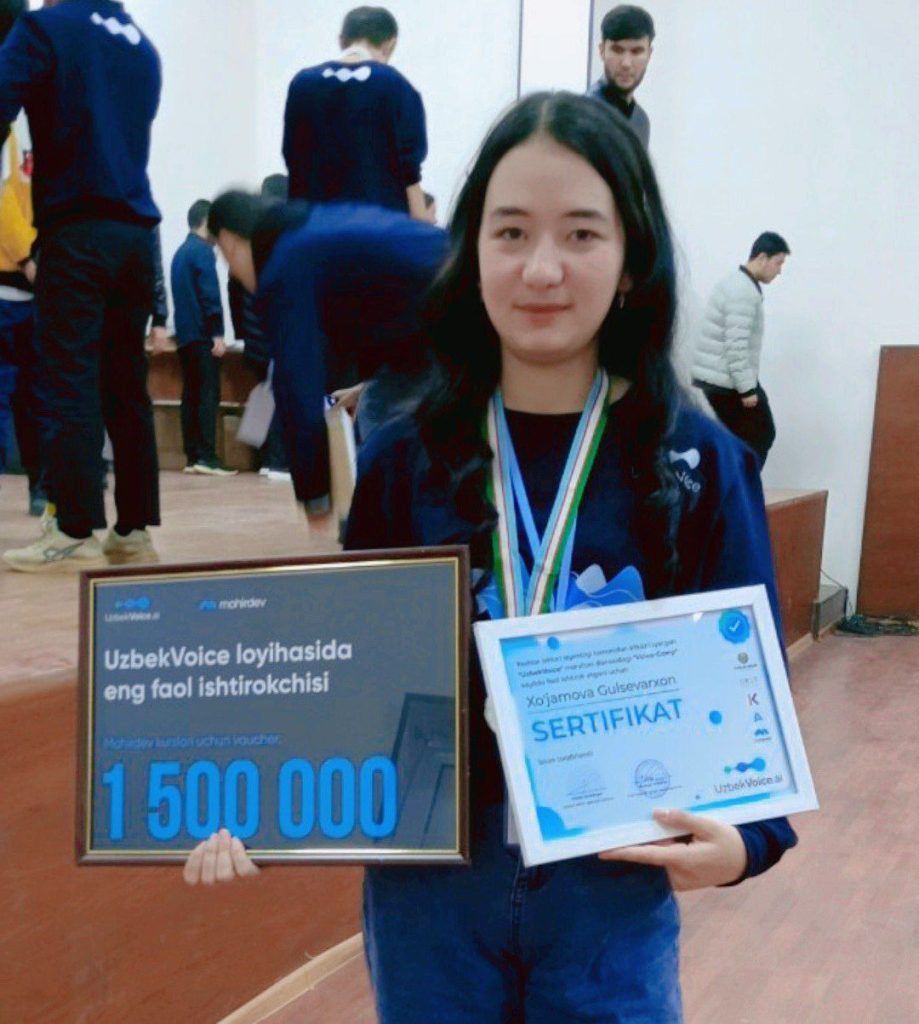
SWEET ANXIETY OF MOTHERS
A piece of children's heart always lives in the hearts of our mothers. So long as he is still a child. We children always make mothers think and worry. Although there is really no need to worry, you always care for us with motherly love. Your imagination is always busy wondering if my child is calm, has a full stomach, and is not covered. Mothers, your hearts are white, your love is a river, your wishes are abundant, and your prayers are endless.
We children will reach your value only by becoming mothers, and even then we will remain children for you, your worries and sorrow for us will not end, on the contrary, your time and life will increase for you, now our children - your sweet grandchildren.
My mother, be happy that you consider these sweet worries to be the meaning of life! May you be healthy for our happiness, even though your dreams are busy with sweet worries, never let your eyes cry for my child!!!
Gulsevar Khojamova
Student of Andijan State Pedagogical Institute
Poetry from Duane Vorhees
OUR PLACE IN SPACE Our egg and our girdle – from our toelines to stars’ beyonds, edgeless sky occupies. Continents and constellations indicate sky’s compass points in all directions. Here, and there, it corrals our air. Sky’s only brake is our imagination: We house our deities in this infinite bubble, map every manifestation of this cosmic envelope. We extract our character and extort destinies through constant observation, keen ingenuity, endless speculation as we contemplate wonderingly at sky’s progress and creation. AMERICSSON Whores parade their hymens and diplomats their swords. Priests display their diamonds. With confusion since birth futures ignore their pasts. Cowards hang their medals and gluttons wear their fasts. The sugar tastes bitter from the sweat of the slaves. All the stones and banners can't cover all the graves. The lame think they're dancers. The blind behave like seers. The deaf play musician. Hiding behind paved mirrors, the meek show ambition. Our clear insight is blurred. O NIGHT, THE DOMAIN OF OUR DREAMS The full world by day is a speckled shade, but colors at night all coordinate. Our humanity claims its sanity’s enshrined in marble but held together by spirit and breath, yet we live in dust and we choose to starve amidst much rich stock. Only dark’s tattoo clears checkered shadows. THE SINS OF POETS AND PASTORS When preachers and poets exercise our metaphorical rhetoric we much prefer the dramatic --the pitchfork of lightning-- above the anticlimactic --a blanket of sunshine. The wrinkled and crippled shall arise sooner than the smooth and the spry. The salve is shadowed by the sting, and Found, by Wandering. The tornado and the torrent and the volcano’s ring are prized beyond plastic ornaments. We tend to the tortured and the tried. TELL ME. ARE YOU SURE? I wonder if once half our limbs were wings, like a fowl, or if they all had thumbs once. Or is that only now? The asker wants to know. Do we see us in mirrors, or need a fluoroscope? Are lovers on the level or are they on a slope? This doubter wants to know. Was Tigris always Tigris or once was it Paradise? Was Jesus a carpenter or always just a christ? This skeptic wants to know. Are the answers on the internet? Or in ourselves? Or should I communicate with oracles and elves? This searcher wants to know. We learn through maturity? But ages are cages…. Or from these ancient books of fingered, faded pages? Don’t we all want to know? QUANDARY Flatter me – Do I receive or repeat? With contempt or reciprocity? THE PROCESS My appetite is my engine. I transubstantiate the wine of night to morning wind, body to pulsed headache state. And I might write undisciplined doggerel to celebrate. I eat that shite. I take it in and digest it. I translate rails into kites and doubt to djinn; vomit; and hope it pulsates.
Christopher Bernard reviews Cal Performances’ production of Octavia Butler’s Parable of the Sower in Zellerbach Hall
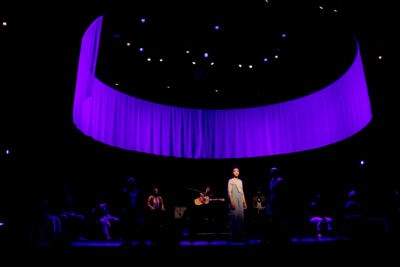
A Seed on Rich Soil
Octavia E. Butler’s Parable of the Sower
Cal Performances
Berkeley
Exactly thirty years ago, a novel appeared, with little fanfare or publicity, that would have disappeared under the ocean of similar books that die on the day they are born if it hadn’t been for the kind of chance that has saved more than one book from oblivion.
It found a handful of readers – just the right, lucky handful – who passed the word along to other readers, who did the same for others, until it created a union of enthusiasts who found its disturbing vision compelling and entirely too plausible, yet strangely beautiful. The author continued to work in obscurity for many years, and was just attaining recognition as a significant voice in American literature when she died, at 59, in 2006.
The book in question is Parable of the Sower, the author Octavia E. Butler. And the vision that commands it, and its sequel Parable of the Talents, is the basis of the gospel plus rockabilly opera written and composed by Toshi Reagon and Bernice Johnson Reagon and performed at UC Berkeley’s Zellerbach Hall that I saw on this year’s Cinco de Mayo.
The 1993 novel is set in Los Angeles in 2024, its sequel a few years later. And its vision, at the time it quietly entered the world, must have seemed at the margins of plausibility, a Mad Max version of California fed with cocaine, speedballs, and the rest of the paranoid arcana of the drug culture. Seeing the story play out in 2023 – after the bedlam of covid, the compulsive self-harming of San Francisco, capital of the worldwide technological empire that is shredding society while spewing billionaires like an army of combines across a field of ripe wheat, the descent of America into a cold civil war between the impossibly wealthy and the politically disenfranchised, culturally despised, and economically impoverished – makes one believe the notion of the oracular power of art may not be entirely a professor’s dream and a teenager’s nightmare, but mere palpable reality.
The opera the story has spawned, through the brilliant talents of the Reagons (a mother-and-daughter team of writers and composers – excuse me, but isn’t that the most inspiring and heart-warming thing ever?) and a much-talented ensemble of instrumentalists, singers and dancers (the two last often the same), created a thoroughly inspiring evening for a packed and extremely diverse audience in the heart of the UC Berkeley campus.
The opera plays without intermission for a little over two hours; a probably wise decision, since a lengthy break between the two parts may well have weakened the tension built up so skillfully in the first hour. Though the performance is called an “opera,” it feels more like an oratorio, since there is less emphasis on an involved plot and dramatized action than on a series of musical and dance numbers presenting states of mind, moments of crisis, experiences of trauma and loss, and brave attempts to make sense of them and take away, in the teeth of destruction and chaos, some shred of moral and spiritual guidance, some basis for faith and hope.
The plot insofar as there is one revolves around a young woman of color, named Lauren Oya Olamina (a luminous Marie Tatti Aqeel), who lives with her family in a poor community walled away from a collapsing outside world and trying to find meaning in an old-time religion under the leadership of the girl’s reverend father. Between musical numbers that fluctuate between the young girl’s fears and longings and the anguish (alleviated by a strenuous but sometimes forced optimism) of her community, she retreats to a notebook where she gathers her thoughts in search of a meaning her father’s faith has failed to give her.
The tensions within the community, exacerbated by having no escape to the outside world, explode at last, destroying the wall that has been both protection and prison, and scattering a group of destitute survivors, among them Lauren, wandering across a landscape devastated by the forces of the postmodern world, toward a nameless destination “to the north.”
When the wall falls, Lauren loses her family and, joining in destitution and poverty in her march across a California wilderness while hiding her vulnerable youthfulness and femininity behind a masculine cloak, she leads her group – a “chosen family” of the homeless, despairing and forlorn – with a new faith, a new religion that she calls “Earthseed,” with a text written by herself: “The Books of the Living,” and a central doctrine exalting “change” as the essence of the divine.
But there is desperation in her new faith. Indeed, it is a tragic doctrine, one that Lauren herself does not seem willing to face. Because to worship change for its own sake is to worship death. Those who exalt “change” seem to think that “all things change (but I’ll still be here).” But that is not so: if all things change, it is precisely you who will not be here.
The resemblances between the 2020s imagined in the mid-90s and their actualities today are often uncanny. And Butler’s vision, conveyed with both passion and enchantment by the Reagons and their ensemble, gripped this viewer with a persuasiveness, long after the last chord, that is rarely sustained for so long. Here indeed (to use Keats’s famously controversial phrase) beauty was truth, truth beauty.
The performance, despite the grimness of the story, ended on a note of hope that avoided both bromides and fraudulent optimism (a curse of much serious art with popular pretensions). It concluded with a rousing musical version of the biblical parable that gives the work its title. For those who don’t recall it, it amounts to the basic truth that, though many seeds of the sower fall on barren ground, on rocks and among thorns, some few fall on rich soil and fertile land, and these take root and thrive and grow to flower and fruit “a hundredfold.”
Toshi Reagon served as both introducer and guide into Butler’s world; she was also lead guitar and commenting “folk singer” bringing Butler’s vision up to date in a way the author would no doubt have enthusiastically approved. Toshi was aided by a strong singing duo, Abby Dobson and Shelley Nicole, and a backup band that sounded far larger than its five members.
After the show, there was a wide-ranging discussion with five of the performers. Toshi left us with much wisdom to savor, not the least of which was this: “There are those who believe what they know, and those who deny what they know. Whatever you do, believe what you know.”
Amen to that.
_____
Christopher Bernard is a co-editor and founder of Caveat Lector. He is also a novelist, poet and critic as well as essayist. His books include the novels A Spy in the Ruins, Voyage to a Phantom City, and Meditations on Love and Catastrophe at The Liars’ Café, and the poetry collections Chien Lunatique, The Rose Shipwreck, and the award-winning The Socialist’s Garden of Verses, as well as collections of short fiction In the American Night and Dangerous Stories for Boys. His children’s stories If You Ride a Crooked Trolley . . . and The Judgment of Biestia, the opening stories of the Otherwise series, will be published later in 2023.
Artwork from Mark Young
Essay from Boronova Sevinch
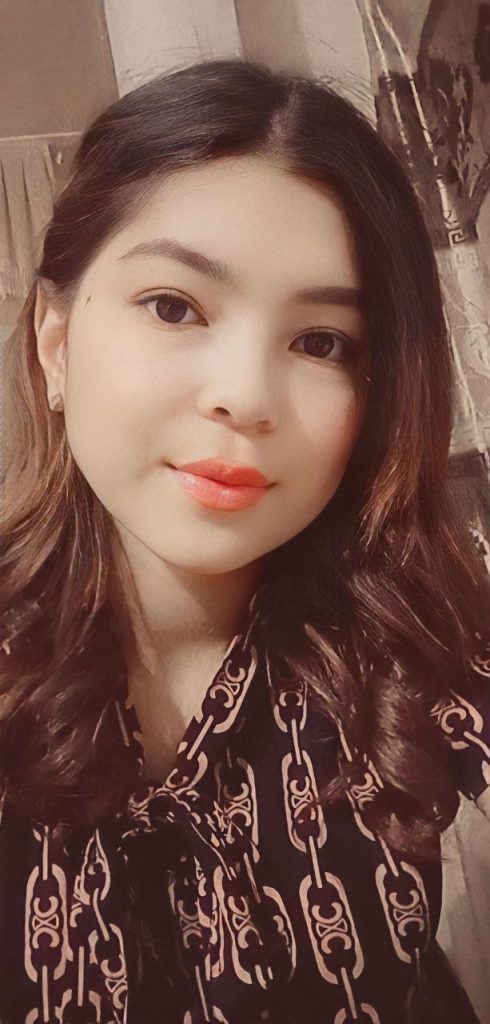
The hardest day I was young then. The sky was full of stars, the yard was full of dust, the water was flowing from the ponds, it was as if the darkness of the sky was disturbing me. I was in sweet sleep; at one point, a sad, quiet sound was heard from under my ear. When I slowly opened my eyes, my mother was standing in front of me, pale as if she was afraid of something. It was already late. Outside, the dogs were barking and the wind was blowing. My mother said in a sad voice: my daughter is not feeling well, my blood pressure is rising for some reason. I ignored my mother's words and continued to sleep. Even then, my poor mother would not wake me up, saying that she is tired, let my daughter sleep. When I wake up in the morning, our yard is dirty. Before, when I woke up, my mother would prepare breakfast and greet me with a sweet smile. And I didn't ask anyone where my mother was, and I wasn't even interested. I wonder why I did that. If those times were to come back again, I would not smile even a step from my mother's side. Later I found out that my mother was in the hospital. Once I found out that my mother was in the hospital; I didn't hear from mom saying how are you? One day when we were sitting with my brothers, eadam came; They said, "Go, I will take you to your mother." We were very upset by what my father said. Even though my mother was in the hospital, my father became a mother instead of my mother. They didn't say they were missing my mother and we went to the hospital. My mother was sleeping. There were many medicines on my mother's table. I started to get scared seeing these and said mother in a low voice. Then my mother opened her eyes and started stroking my head. "Mom, go, let's go home," I said, crying. At that moment, my mother closed her eyes and took her hands from my head. Then the doctors came and begged us to come out, and I said to my father; I asked if my mother would not return home. My dad; They read that your mother will definitely come home and my daughter will cook sweet food for you. In my life, I thought that my mother will not come home anymore, she will not cook us sweet food, and every day I asked God to heal my mother. Even if I stood or walked, my mother would not leave my mind. The world seems dark to my eyes. Even my mother entered and exited my dreams. One day when I came home from school, there were too many people in our house. I was scared to see them. It was as if my heart stopped, and when I ran into the house, my mother was in front of me; they said happy birthday my daughter. I couldn't believe my eyes. I was very happy to see my mother. Then I forgot that it was my birthday. After that day, I did not want to take a single step in front of my mother. These events were the hardest day of my life. I was very afraid of losing my mother. Mother means the closest friend, the best confidant. So let's protect our mothers. We should give them more love than before. Our mothers are our heaven.
Boronova Sevinch was born on November 4, 2006 in Dehkanabad district of Kashkadarya region. Currently, she is a student of the 1st stage of the Academic Lyceum of Karshi State University.
Poetry from Arikewusola Abdul Awal
After Robert Frost's The Road Not Taken
For things they did not tell us:
“Life is our teacher, & our tears,
sighs and sweats; the levies.”
Mother told me that father was a good man
& I should tread the path he led. & because
she was my mother, saying no was a metaphor
for calling myself unfilial.
I echoed the songs of his footprints, hoping
to reach the shore, but yonder was his
footprints echoing some faded tunes that
reeked of rusty bones. There the stamps
on the sand became broad & heavy; my feet,
swollen. I folded my hopes into a talisman,
hung it on my suprasternal notch–to drag
this broken body to the shore. Yesterday,
mother called me a gentle man (like
father's mother had done) & I smiled.
I smiled, shrouding my cries & pangs under
a fake face. I knew father, too, was a hostage
like me for there were tears and sweats
in the wake of his footprints & yet, he died.
He died like a contused chameleon,
shredded off of his color to look for another
at the shore, but couldn't reach the shore.
But because she's my mother, I couldn't teach her
that we all had sketches of our destinations.
For here, we grew up, we grew up to brook
the path on which life put our feet.
And the courses to our own shores
were the roads not taken.
Arikewusola Abdul Awal writes from Oyo state. His poems have appeared on ila magazine, willi wash, Teen Lit journals, Literary Yard, The Yellow House, Eboquills, Afrihill Press, Spillwords magazine, Thirty Shades of Roses Anthology, Broken chunks of hearts, World Voice Magazine and elsewhere.
When he is not writing, he is found reading or watching movies.

